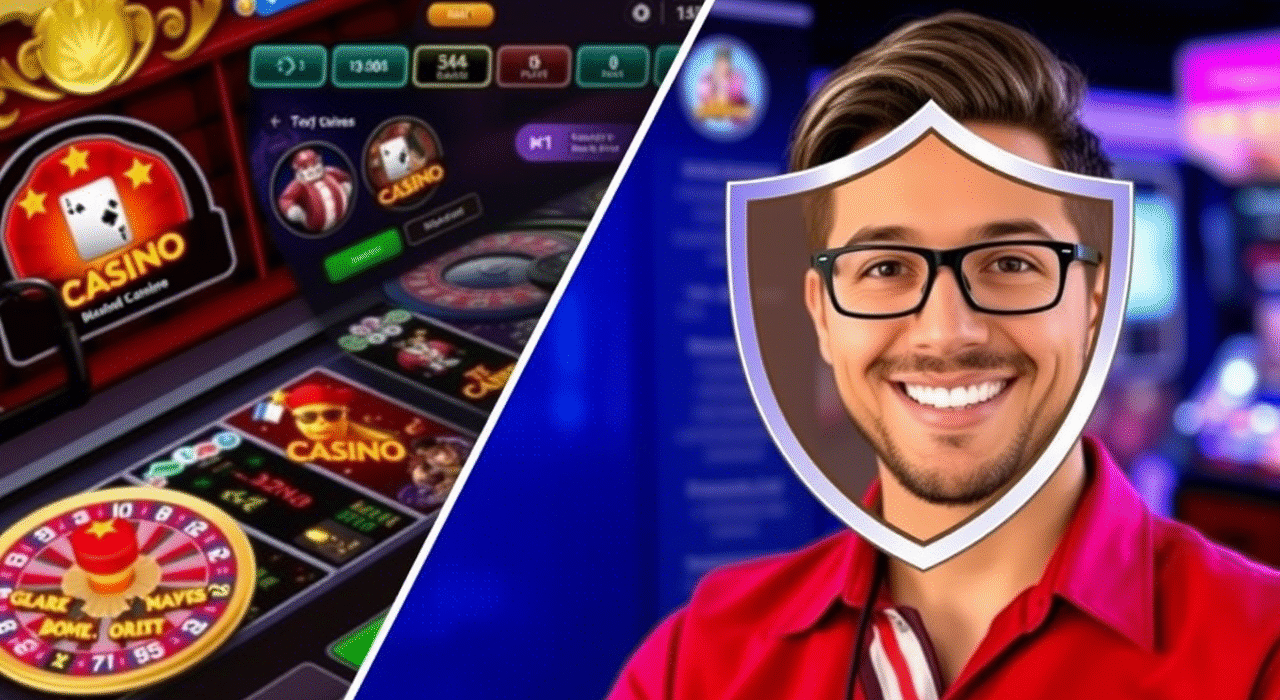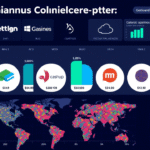🎯 Introduction: More Than a Checkbox
For years, responsible gambling (RG) was seen as a regulatory obligation—a box to check, a disclaimer to display, a pop-up to dismiss.
But in 2025, that perception is rapidly shifting.
Today, operators that embrace robust responsible gambling tools aren’t just staying compliant—they’re future-proofing their businesses, building trust, and creating sustainable player relationships.
This article explores the business case for RG tools—not from a moral or legal lens, but from a profitability and brand strategy perspective.
🧩 What Are Responsible Gambling Tools?
Responsible gambling tools include technologies and interfaces that help users:
- Set deposit, loss, and wager limits
- Take cooling-off or self-exclusion breaks
- Receive playtime reminders
- Track spending behavior
- Access support resources (e.g., links to help organizations)
Newer tools now use AI to detect problematic behavior, predict risk patterns, and offer personalized nudges.
💼 Why It Makes Business Sense
1. Lower Churn, Higher Loyalty
At first glance, giving users ways to limit their play might seem counterproductive. But the reality is this:
🧠 “Players who feel in control, stay longer.”
If a user loses money quickly without guardrails, they often churn out or self-exclude. But players who pace themselves, understand their habits, and trust the platform’s transparency are more likely to become long-term customers.
Real-World Data Point:
Kindred Group reported that over 60% of players who used limit-setting tools remained active for over 6 months, compared to less than 30% among those who didn’t.
2. Brand Differentiation in a Saturated Market
With operators offering similar odds, bonuses, and games, trust becomes the differentiator.
Platforms that are proactive in player protection gain reputational capital. In an age of viral reviews, watchdog blogs, and social media transparency, brands with visible RG systems stand out.
Example:
BetBlocker integration and monthly RG performance reports have become PR assets for operators like Betsson and Flutter.
3. Future-Proofing Against Regulation
Every major jurisdiction—from the UKGC to MGA to Ontario’s AGCO—is tightening rules around RG.
What’s optional today could be mandatory tomorrow.
💡 Investing in RG tools before they become legal requirements avoids:
- Costly retrofitting
- Fines or license suspensions
- Developer resource crunch
Operators who treat RG as a proactive product feature, not a compliance afterthought, are better prepared for jurisdictional expansion and policy shifts.
4. Data-Driven Player Insights
Modern RG tools aren’t just barriers—they’re data mines.
They help operators:
- Segment users by risk profiles
- Tailor promotions and communications
- Identify VIPs who are approaching burnout
- Detect bots or fraudulent behavior masked as compulsive play
This data fuels responsible CRM strategies, helping marketers target healthy, high-value segments while avoiding predatory practices.
5. Reduced Customer Support Costs
Players experiencing regret or addiction often bombard support teams:
- Demanding refunds
- Threatening chargebacks
- Posting public complaints
By implementing self-service RG dashboards, chatbots, and real-time nudges, operators reduce reactive support tickets and legal liability.
Bonus: Customer service teams appreciate employers who prioritize player wellbeing, improving morale and retention.
🧠 The Psychology of Player Trust
Trust is fragile in gambling.
Players are constantly on edge—worried about being scammed, losing too much, or not being able to cash out.
When an operator offers meaningful RG tools, it sends a powerful message:
“We want you to enjoy this experience safely. Your wellbeing matters more than one more bet.”
That sentiment builds emotional loyalty—the kind no loyalty point or cashback bonus can manufacture.
💡 Key Tools That Actually Work
Not all RG tools are created equal. Some are too hidden, too clunky, or easy to bypass.
Here’s what best-in-class looks like in 2025:
1. Smart Limit Setting
- Dynamic nudges when a player nears 80% of limit
- Visual representation of time/money spent
- AI-adjusted suggestions based on past patterns
2. Playtime Reminders
- Gamified prompts like: “You’ve played for 90 minutes. Time for a break?”
- Optional auto-logout after set time thresholds
3. Personal Risk Scores
- Displayed in user dashboard
- Updates weekly with color-coded insights
- Option to speak with an RG specialist via live chat
4. Self-Exclusion APIs
- Integration with multi-operator networks
- Auto-alerts to affiliates to pause marketing
- Optional cooling-off with “return with safeguards” flow
🔄 Affiliate Integration Is Crucial
Affiliates drive the majority of traffic for many operators. But they often sit outside the RG ecosystem.
Smart operators are now:
- Requiring affiliates to display RG disclaimers
- Embedding limit-setting tutorials in promo pages
- Offering white-label RG microsites for affiliate use
Why? Because regulatory bodies are starting to hold operators accountable for affiliate messaging too.
📉 What Happens When You Ignore RG?
Ask any operator hit with a fine, suspended license, or tabloid exposé—it’s not pretty.
Case Study: UKGC Crackdowns
Between 2022–2024, the UK Gambling Commission issued over £45 million in fines—largely for:
- Inadequate affordability checks
- Failure to identify vulnerable players
- Poor self-exclusion controls
The reputational damage? Priceless—and not in a good way.
📈 The ROI of Responsibility
Let’s talk bottom line.
When done right, responsible gambling tools:
| Benefit | Business Impact |
| Lower player churn | Longer LTV (lifetime value) |
| Enhanced brand trust | Higher retention, lower CAC |
| Early detection of at-risk users | Lower refund and chargeback rates |
| Better compliance posture | Easier market expansion |
| Proactive reputation management | Positive press, fewer PR crises |
| Scalable player segmentation | More relevant promotions and offers |
🔮 What’s Next in 2025 and Beyond?
The RG frontier is now tech-first. Trends to watch:
- AI-powered behavioral analysis to flag micro-triggers
- Voice assistants that prompt breaks during play
- Neurotech integrations measuring player stress in real time
- Blockchain-based self-exclusion registries for global enforcement
As the gamification of gambling intensifies, so must the gamification of protection.
🏁 Conclusion: Protect to Prosper
Responsible gambling tools aren’t just moral imperatives—they’re strategic assets.
They boost trust, extend player lifecycles, reduce legal risk, and build brands that last longer than bonus cycles.
Operators that understand this aren’t just doing what’s right—they’re doing what’s smart.
The question isn’t “Can we afford to invest in RG tools?”
It’s “Can we afford not to?”











